India's Rural Rebellions -- It's All In The Family
The Tikait family has a history of being a thorn in the side of Indian governments that take on the country's farmers, and their emotional appeal has again energised a showdown with authorities.
Three decades after his father led a massive protest into the capital, Rakesh Tikait has revived a campaign against agricultural reforms that had quieted after a rally last month turned into an ugly rampage.
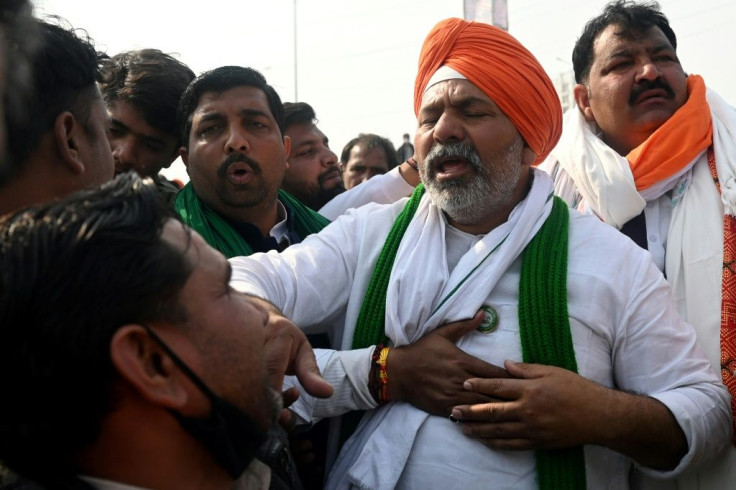
Sat in a cold protest camp on the outskirts of Delhi with police building barricades, the internet cut and some farmers drifting away, the 51-year-old lit a fuse with his ultimatum.
"If the laws are not repealed, Rakesh Tikait will commit suicide," he said in a tearful video.
His message spread like wildfire on social media around Punjab and Haryana states and beyond.
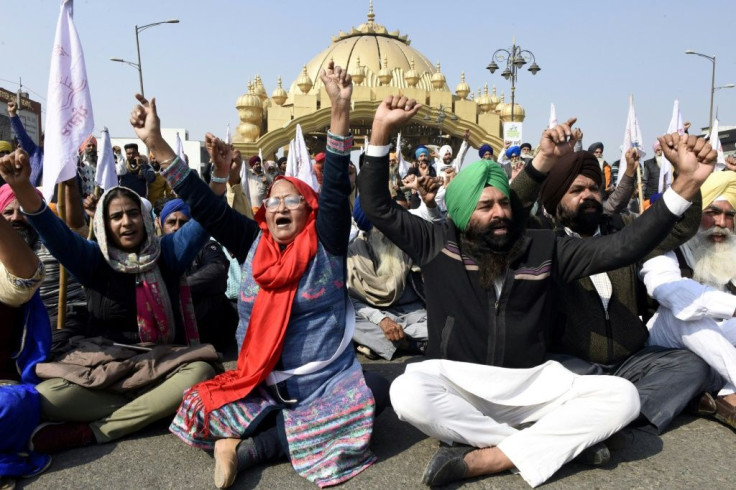
Tikait also refused an order to vacate the Ghazipur protest camp and the next day a new wave of tractors carrying thousands more protestors arrived.
"Everyone cried that day, it wasn't just Tikait," said Giriraj Saini a farmer from Uttar Pradesh state who spent hours manoeuvring through barricades and diversions to reach the camp at the crack of dawn after seeing the video.
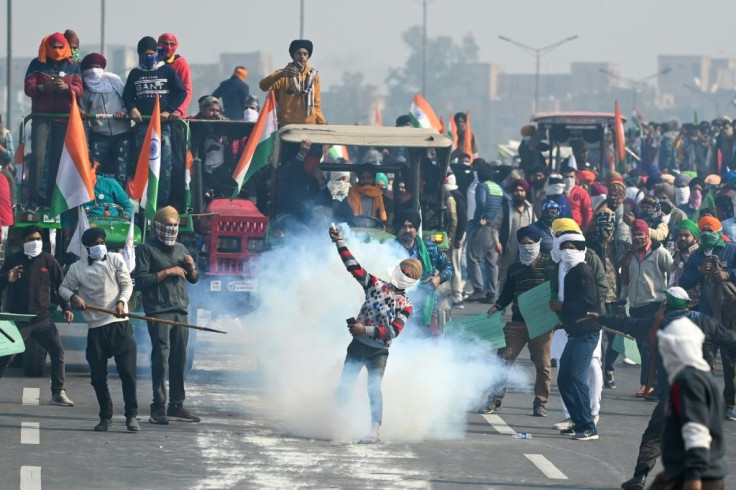
"It's like a rebirth of the protest," said Kuldeep Tyagi, a protestor from Haryana.
Since November, tens of thousands of farmers opposing new free market reforms have posed the biggest challenge to Prime Minister Narendra Modi since he came to power in 2014.
The Hindu nationalist government says the changes will bring new investment to a sector that employs about two thirds of Indians and will boost rural incomes.
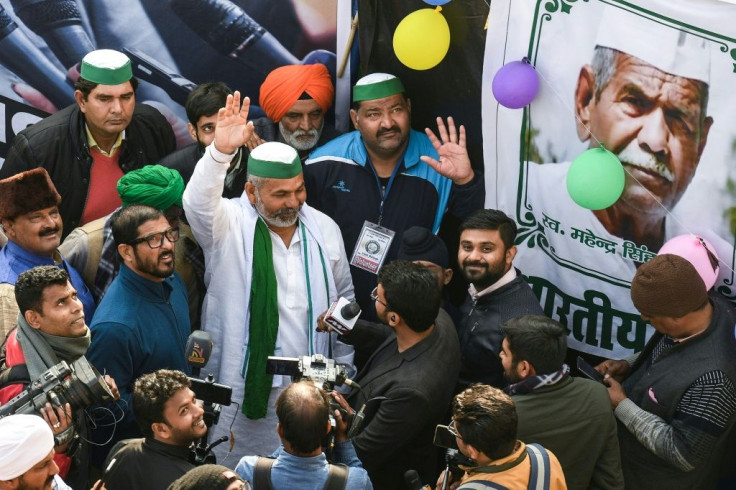
Farmers say corporate giants will overtake the industry and the loss of longstanding guaranteed minimum prices will ruin them.
The tussle took an international turn earlier this month when pop superstar Rihanna and climate activist Greta Thunberg tweeted their support for the farmers, sparking furious reactions from Modi fans in Bollywood and India's sporting world.
Rakesh Tikait has suddenly become the face of the protests like his father, Mahendra Tikait, was in 1988.
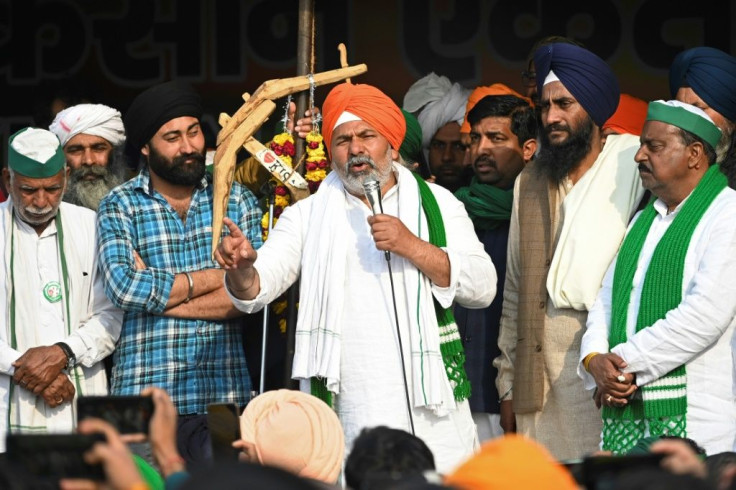
Tikait senior marshalled around 500,000 farmers onto the lawns in front of the government complex in the capital to force an increase in sugar cane prices.
Rakesh now pours scorn on the government on a stage at the Ghazipur protest site covered with posters of his father.
He says he is aware of the family comparisons, particularly in his native Uttar Pradesh.
"I will rise to their expectations. I will finish what I have come for," he told AFP.
In the past week, tens of thousands of people have flocked to rallies to hear him condemn Modi's Bharatiya Janata Party (BJP), which he had allied with for the 2009 elections.
Tikait was also named -- along with BJP politicians -- in an official investigation into communal riots in Uttar Pradesh in 2013. And Defence Minister Rajnath Singh appeared with Tikait at a 2015 commemoration for his late father.
But now, his sharp words for his former allies are hitting home.
People line up each day to take selfies with Tikait and hand over donations from their villages. The government knows it has a fight on its hands.
Journalist and commentator Ajoy Bose said Tikait's mobilisation of the farmers has become a big "headache" for the government which thought it was finished with the protests after a January 26 rally turned violent and left hundreds injured.
"It's difficult to vilify him. He's mainstream so you can't call him anti-national, and he's not Sikh so one can't even bring in the Sikh extremism angle," Bose said. Many of the protesting farmers are Sikhs from Punjab.
Tikait says the protests could go on for months, no matter if water supplies are cut and barbed wire fences surround the camp.
Harinder Rana, a 69-year-old farmer from Haryana, said Modi had "messed with the wrong person".
"He (Tikait) will not let you go this time," he said.
© Copyright AFP 2024. All rights reserved.





















